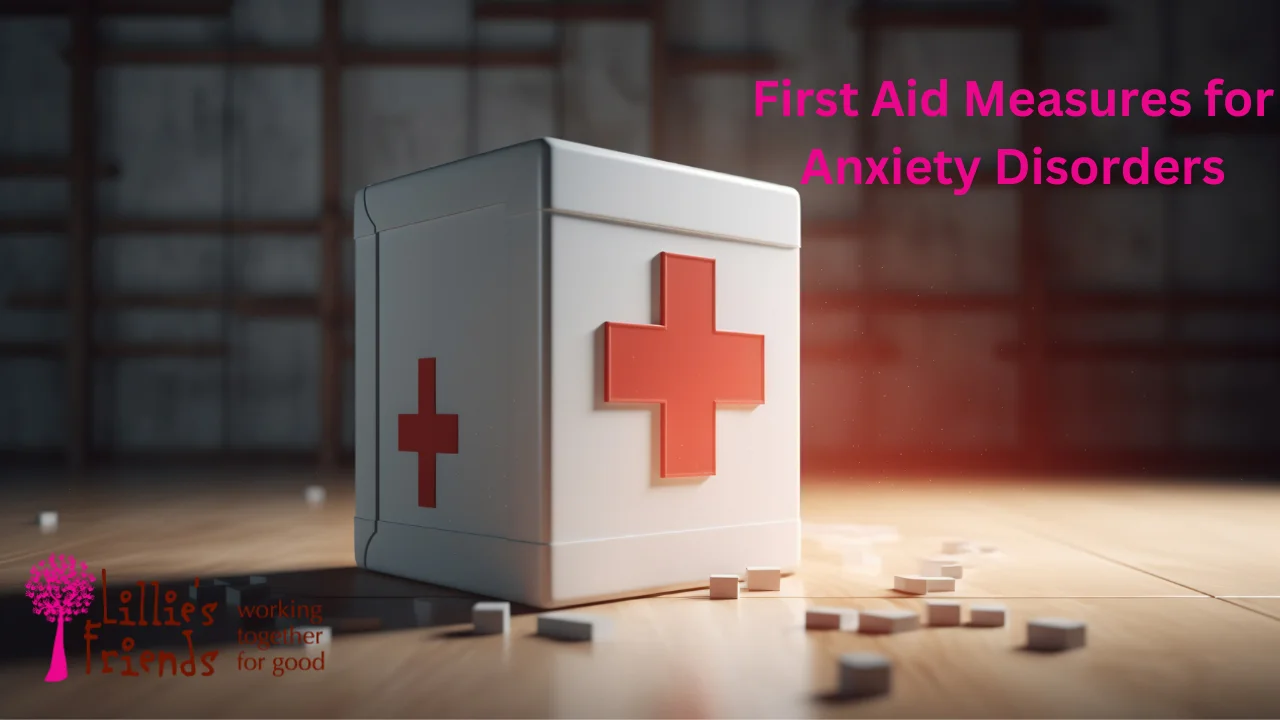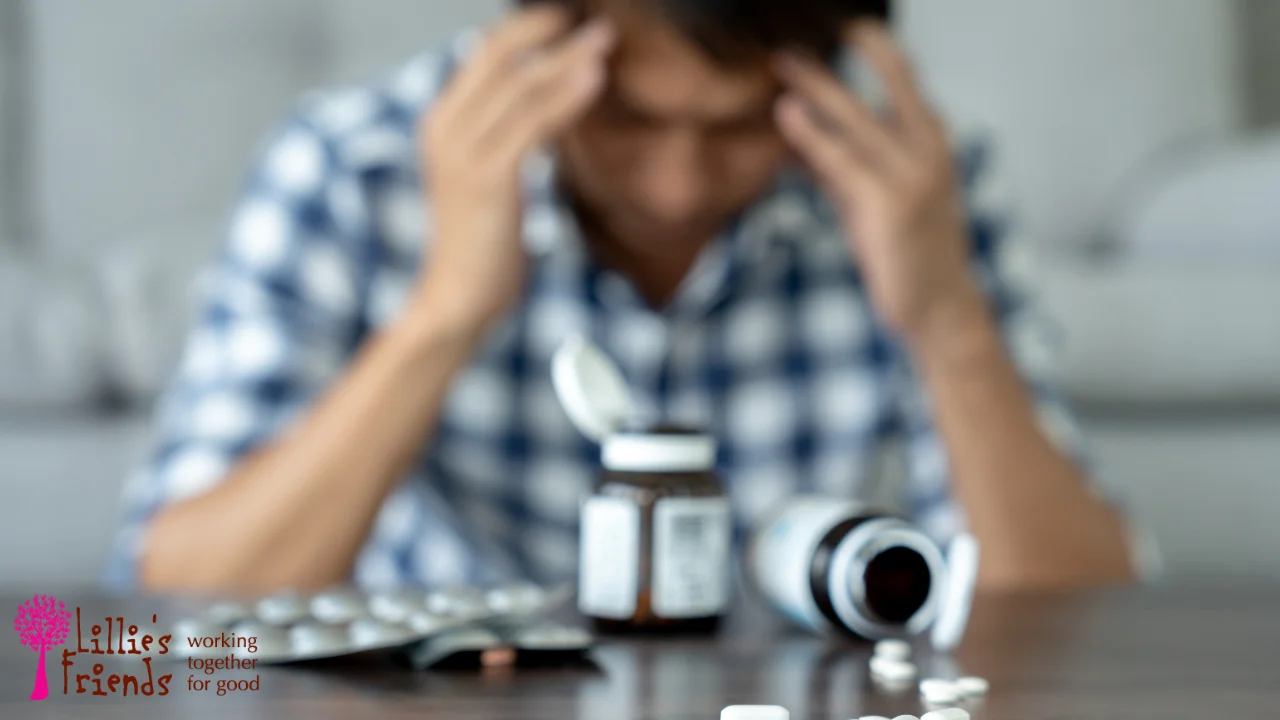Medical Disclaimer
The medicines listed on this website are only there to give you knowledge. Just because they are on the list doesn’t mean that anyone will be given them; in the end, treatment decisions are up to the healthcare workers. The medicines on this list are not all of them. Doctors may recommend other drugs, even ones that don’t contain stimulants, depending on the patient’s specific health needs and circumstances. Read more
Highlights
- When anxiety symptoms are severe or disrupt daily life, medication may be prescribed.
- Diagnosis and needs determine medication.
- Consult a doctor about dosage, side effects, treatment duration, and other instructions.
- Medicine can be enhanced by non-medication methods.
According to the Anxiety and Depression Association of America, anxiety disorders are among the most prevalent mental health conditions in the United States, affecting 19.1% of adults ↗ annually.
Patients may or may not require medication, depending on the precise diagnosis and intensity of symptoms. Continue reading to find out more about the steps involved in the process and when to think about pharmacological treatment.
Initial Measures to Treat Anxiety Disorders
Making a diagnosis and evaluating symptoms is the first step in the process. Generalized anxiety disorder (GAD), panic disorder, obsessive-compulsive disorder (OCD), social anxiety disorder, and post-traumatic stress disorder (PTSD) are examples of common anxiety disorders ↗. Although the symptoms of each condition vary, the following are the most typical ones:
- Overwhelming concern
- Restlessness
- Having trouble focusing
- A great deal of fear
- Avoidance actions
- Quick-thinking
- Exhaustion
Physical symptoms like headaches, palpitations, upset stomach, and shortness of breath can also be caused by certain conditions. Anxiety symptoms can manifest in a variety of contexts and range in intensity. A medical professional suggests a course of treatment after assessing each of these factors and reaching a diagnosis.

Does Taking Medicine Always Help with Anxiety?
Medication is not always the first option or the only treatment for anxiety. Health care providers typically advise beginning with lifestyle modifications and psychotherapy if the symptoms are not severe. Non-pharmacological techniques can also be used to treat acute anxiety, but they might not always be sufficient for people who experience it frequently or persistently or who have severe panic attacks. It is worthwhile to talk about the use of medication in these situations.
When Should I Think About Taking Anxiety Medicine?
In the following situations, it may be appropriate to speak with your clinician about this:
- If you suffer from severe panic attacks or anxiety.
- If your everyday activities are being hindered by severe anxiety symptoms.
- If the condition begins to cause issues in your personal and professional life.
- If alternative non-pharmacological methods didn’t seem to work.
- If you experience severe physical symptoms that cannot be attributed to any other possible reason.
- If your schedule has been seriously thrown off, or if you have problems falling asleep.
- If there are any co-occurring mental health conditions.
What Is the Best Anxiety Drug for You?
Anxiety disorders are treated with a variety of drugs that work in different ways. Every class has unique indications, dosage, advantages, and disadvantages.
Your personal circumstances will determine the medication you choose, which may require some trial and error. Among the options that are frequently recommended are
- Benzodiazepines: Due to their potential for abuse and withdrawal symptoms, these medications are typically prescribed for a brief period of time and are relatively fast-acting. Examples include lorazepam (Ativan) and alprazolam (Xanax ↗).
- Serotonin-norepinephrine reuptake inhibitors (SNRIs ↗): These medications can be used for long-term treatment and raise the brain’s levels of the neurotransmitters serotonin and norepinephrine. Examples include duloxetine (Cymbalta) and venlafaxine (Effexor).
- Buspirone ↗: This medication reduces anxiety by raising serotonin and dopamine levels. When the aforementioned drugs don’t work, this one is used.
- Tricyclic antidepressants: Although less frequently used, these medications also elevate mood by raising serotonin and norepinephrine levels. Examples include imipramine (Tofranil) and amitriptyline (Elavil).
- Pregabalin (Lyrica): Off-label, it is used to treat generalized anxiety disorder (GAD), which includes restlessness, worry, and physical signs of anxiety.
- Beta-blockers: By inhibiting adrenaline, these medications are primarily used to treat heart conditions and high blood pressure. They can also be used to alleviate anxiety’s outward manifestations. Propranolol ↗ (Inderal) is one example.
- Selective serotonin reuptake inhibitors (SSRIs ↗): These medications, which take a few weeks to fully take effect, are the first line of treatment for chronic anxiety. They promote calmness by raising the brain’s concentration of the neurotransmitter serotonin. For instance, fluoxetine (Prozac) and sertraline (Zoloft).
Patients may differ slightly in how the same medication acts and how long it lasts. Don’t take more than the recommended amount, and talk about the specifics with your doctor.
Which Questions Are Appropriate to Ask a Physician?
You might be curious about the course of treatment when you begin taking a medication. Don’t be afraid to talk about them with your doctor. The following are some crucial inquiries you might want to make:
- When should I take my medication, and what is the recommended dosage?
- For what length of time should I take it?
- When can I expect to notice a change for the better?
- What happens if I don’t feel the effects of the medication?
- What adverse effects should I be aware of?
- How do I proceed if I forget to take a dose?
- Should I eat or not eat before taking this medication?
- Are any safety measures in place?
- Is addiction a possibility?
- Can I take this medication with my other medications and supplements?
Additionally, let your doctor know what treatments you have tried in the past and how successful or unsuccessful they were for your mental health issue. They will be better able to comprehend your unique situation and determine the best course of action to enhance your mental health as a result of all of this.
Medication for Anxiety Is Not Your Only Choice
Although anxiety medications work well, there are other options for treatment. Medication is merely one of many pieces that must fit together to form the puzzle that is anxiety treatment. If you’re hesitant about taking medications, a healthcare professional can assist you in finding alternatives.
But it’s crucial to keep in mind that medical professionals are trained and experienced to recommend the best course of action for you. The choice to take or not take medication is ultimately a personal one, but it is crucial to talk to your doctor about it. They will respond to your inquiries so that you can weigh the benefits and drawbacks and determine which will best help you manage your anxiety disorder.
Alternatives to Medicine
The following tactics may be useful if you’re hesitant to take medications or would prefer to look into non-pharmacological alternatives in addition to medications:
- Psychotherapy: dialectical behavior therapy (DBT ↗), exposure therapy ↗, cognitive-behavioral therapy (CBT ↗), and psychoanalysis ↗.
- Mindfulness and relaxation techniques ↗ : Yoga, progressive muscle relaxation, meditation, deep breathing exercises, and visualization techniques all help people feel less anxious.
- Lifestyle modifications ↗: You can feel less anxious by engaging in regular exercise, maintaining a healthy diet, improving your sleep hygiene, and consuming less or no alcohol and caffeine.
- Support groups: You might feel better if you connect with peers ↗ who have gone through the same thing. Your family and friends’ emotional support will also help you feel strong and optimistic.
The bottom line
Making the decision to begin taking medication for anxiety management is a significant and crucial decision that should only be discussed with a healthcare provider. Despite their effectiveness, medications are rarely used as stand-alone treatments. Rather, a holistic approach that incorporates both medication and psychotherapy is typically recommended. Make a video appointment with Lillie’s Friends right now to get individualized care and assistance.











